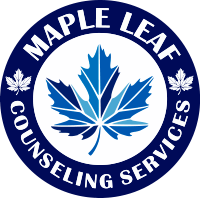Finding the right therapist for childhood trauma therapy treatment is a crucial step in the healing process. It’s important to look for a licensed professional who specializes in trauma-informed care and has experience working with children and adolescents. Building a trusting relationship with the therapist can help create a safe space for the individual to share their experiences and emotions.
Maple Leaf Counseling proudly offers childhood trauma therapy services in Michigan. Call 989.220.3060 or connect with us online to learn about our adult therapy programs or how child therapist Alex Rajewski, LLMSW, works with infants and small children who’ve experienced trauma.
The Effects of Childhood Trauma Can Be Immediate and Delayed
Child trauma occurs more than you think. More than two-thirds of children reported at least one traumatic event by age 16.1 Childhood trauma can have profound, immediate effects on a child’s emotional and psychological well-being. These effects can manifest in various ways, often creating a turbulent environment for both the child and their caregivers. Some common immediate symptoms can include:
- Anxiety – Heightened feelings of worry or fear that can be overwhelming.
- Depression – A pervasive sense of sadness or hopelessness that impacts daily functioning.
- Behavioral issues – Increased aggression, defiance, or withdrawal from social interactions.
- Post-traumatic stress – Flashbacks, nightmares, or severe reactions to reminders of the traumatic event.
- Difficulty concentrating – Trouble focusing on tasks or learning, affecting academic performance.
- Physical symptoms – Unexplained headaches, stomachaches, or other bodily complaints linked to emotional distress.
While these immediate responses are significant, it’s essential to recognize that the effects of childhood trauma can also be delayed, manifesting in various ways as individuals grow older. Symptoms may not show up until later in life, often subtly influencing various aspects such as personal relationships, career choices, and overall mental health. These delayed effects can include difficulties in forming close bonds, challenges in professional environments due to trust issues or anxiety, and potential struggles with self-esteem and identity.
Addressing these potential long-term consequences is crucial not just for healing past wounds but also for fostering resilience and recovery, allowing affected individuals to build a fulfilling and balanced life despite their early experiences.
Childhood Trauma Therapy at a Glance
Childhood trauma therapy encompasses a range of therapeutic approaches designed to help individuals process and heal from traumatic experiences encountered during their formative years. This type of therapy often involves a safe and supportive environment where children and adolescents can express their feelings, thoughts, and memories related to the trauma. Techniques such as cognitive-behavioral therapy (CBT), play therapy, and art therapy may be employed to facilitate healing and coping skills development.
Childhood trauma therapists work closely with adult clients to help them understand the impacts of their trauma, build resilience, and develop healthier emotional responses. By addressing the root causes of distress, childhood trauma therapy aims to promote emotional regulation and strengthen interpersonal relationships. The goal is to empower individuals to reclaim their lives and foster a brighter future free from the shadows of past trauma.
How to Find the Right Therapist for Childhood Trauma Therapy
Finding the right therapist for childhood trauma therapy is a crucial step in the healing process. Here are some important factors to consider:
Specialization
Look for therapists who specialize in childhood trauma or have specific training in trauma-informed care. Their expertise can significantly enhance the therapeutic experience.
Credentials and Experience
Ensure that the therapist holds relevant certifications and has experience working with children or adults with trauma backgrounds. This helps ensure their competence in handling such sensitive issues.
Therapeutic Approaches
Different therapists may use various therapeutic modalities; consider exploring those that resonate with you or your child, such as cognitive-behavioral therapy, art therapy, or play therapy.
Comfort and Rapport
It’s essential to find a therapist with whom you or your child feel comfortable. A strong therapeutic alliance can foster openness and honesty, enabling more effective healing.
Cultural Sensitivity
A therapist should demonstrate an understanding of and respect for cultural, ethnic, and individual diversity. This awareness can impact the therapeutic relationship and its success.
Location and Accessibility
Consider the location of the practice and whether the therapist offers in-person or online sessions, making it easier to attend appointments consistently.
Insurance and Fees
Inquiry about accepted insurance plans and therapy fees. Budgeting for therapy is vital, so ensure that the financial aspect aligns with your means.
Referrals and Reviews
Seek out referrals from trusted sources or read reviews to gather further insights about potential therapists. Personal recommendations can often lead to finding a good-fit therapist.
By carefully considering these factors, individuals seeking childhood trauma therapy can find a therapist who meets their needs and supports their healing journey.
The Benefits of Seeking Help
Seeking help for childhood trauma is a critical step towards healing and recovery. Engaging in therapy can lead to numerous benefits that not only address the trauma itself but also promote overall well-being. Here are some significant advantages of reaching out for professional support:
- Validation of experiences – Therapy provides a comfortable, supportive space where individuals can talk about their trauma without fear of judgment, allowing for the validation of their feelings and experiences.
- Emotional healing – Professional guidance can assist in processing feelings of grief, anger, and sadness associated with childhood trauma, enabling emotional release and healing.
- Coping mechanisms – Therapists equip individuals with practical tools and coping strategies to manage overwhelming emotions and stressors effectively.
- Improved relationships – By addressing trauma and its effects, individuals can enhance their ability to form healthy relationships, fostering trust and intimacy with others.
- Enhanced self-esteem – Therapy can help individuals rebuild their self-esteem and self-worth, encouraging a more positive self-image and identity.
- Increased resilience – Working through trauma can strengthen one’s resilience, aiding individuals in navigating future challenges more effectively.
- Greater understanding – Therapy promotes greater self-awareness and understanding of how past experiences shape current behaviors and emotional responses.
- Support network – Seeking help fosters connections with professionals and potentially other individuals who have experienced similar traumas, creating a supportive community.
In making the decision to seek help, individuals not only work toward healing their past wounds but also pave the way for a healthier, more fulfilling future. This journey often involves confronting difficult emotions, gaining insights into personal patterns, and developing new coping strategies. It is a courageous act that can lead to personal growth, improved relationships, and a renewed sense of purpose and well-being.
Start Moving Forward Today — Contact Maple Leaf Counseling
Taking the first step toward healing can be daunting, but at Maple Leaf Counseling, we are here to support you every step of the way. Our team of experienced therapists specializes in childhood trauma and is dedicated to creating a safe, compassionate environment for you or your child to explore and process your experiences.
We believe that recovery is possible, and our tailored therapeutic approaches aim to foster resilience and emotional growth. Don’t hesitate to reach out—start moving forward today by contacting Maple Leaf Counseling at 989.220.3060 or online to schedule a consultation and begin your journey towards healing and a brighter future. Your path to recovery starts here.
Source:




